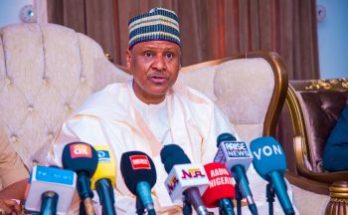By Agboola Bayo
Ibadan
An Economic expert, Dr. Babatunde Ekundayo, yesterday asked the federal government to ensure strict compliance in local content policy in the country, saying that “60 per cent of products in Nigeria are from abroad.”
He said this in Ibadan at the July edition of Nigeria Institute of Social and Economic Research (NISER) research seminal series (NRSS) titled: “Fiscal policy and dynamics of the Current Account balance in Nigeria.”
The varsity teacher of the Surveillance & Forecasting Research Department (SFD), NISER, stressed that there was the urgent need for governments at all levels to in the country create enabling environment for interested investors in creating jobs for the unemployed Nigerians.
To ensure this, Dr Ekundayo said the time has come for strict compliance with the stipulation of local content policy and ensure the achievements of its goals, saying “it is unfortunate that based on the available facts, 60 per cent of products in Nigeria are from abroad.”
He noted that the “implication of the over dependence on foreign goods is that of unemployment, brain drain, poverty and other social problems,” adding that “government at the federal, state and local levels should, without wasting time, start implement the policy that promotes local content.”
According to the Economic expert, Nigeria as a country stands to gain a lot by start implementing policy that promotes local content “especially in the areas of employment opportunities, economic growth and less dependent on the oil sector.”
He said: “Creating enabling environment for the development of the industrial sector; checking the fiscal dominance, fuel by oil windfall and fiscal Indiscreet in Nigeria. The dominance of oil revenue in revenue generation and projections should be curbed through greater investment in other key growth drivers.”
Ekundayo, however, advised governments at all levels in Nigeria to reduce their expenditures to check balance of their payments deficits, saying that “government should restrain rapid increases in its expenditure so as to check balance of payments deficits.”



